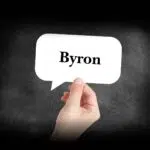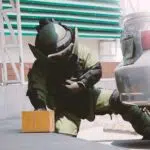National Explosive Ordnance Disposal Day, observed on the first Saturday of May, is a special occasion observed in the United States. It takes place on May 2 this year. The day aims to honor all those who have lost their lives while disposing of explosives and the professionals who continue to put their lives in danger during times of war. Many of them are also severely injured and may lose a limb during a bomb disposal mission. These heroes deserve special recognition since they put their lives at stake for the country and its people.
History of National EOD Day
Despite the fact that explosives have been around since ancient times, there were no bomb disposal organizations until World War II. This is because the war resulted in a large number of deaths in many countries, and it became a time when scientists and leaders prioritized saving as many lives as possible. As the war progressed and Germany continued to drop bombs on different countries across Europe, other world powers began planning a defense system. During this time, the United States, too, expected to be drawn into the war and sought to protect itself from bombs. Handling unexploded bombs (U.X.B.) was one area where the country believed it could reduce the death count of soldiers and civilians. Previously, engineers defused U.X.B.; but as the impact of bombs increased, dedicated organizations trained in the mission of bomb disposal began to form.
The modern bomb disposal units we see today were created in 1940 during the Battle of Britain. The earliest bomb disposal training was conducted at Melksham Royal Air Force Station, Wiltshire, England. In September 1941, an Army Bomb Disposal School was established by the Royal Engineers in Donnington, U.K. From there on, the death toll slowly decreased as the army personnel figured out how to stop clockwork timers, remove fuzes, and steam explosives out of bombs. In 1941, the U.S. also established the Chemical Warfare School at Edgewood Arsenal in Maryland. Today, E.O.D. soldiers are trained professionals who have a distinctive badge and are applauded for putting their lives at risk for the sake of the nation.
National EOD Day timeline
Colonel Sir Vivian Dering Majendie becomes one of the first bomb disposal experts.
In April, the School of Civilian Defense is established at the Chemical Warfare School at Edgewood Arsenal, Maryland, U.S., with bomb disposal training as part of the curriculum.
E.O.D. training and support are consolidated.
The U.S. Army Explosive Ordnance Disposal Center is established.
National EOD Day FAQs
Do U.S. Air Force E.O.D. specialists see combat?
Yes, E.O.D. technicians see conflict and their lives are always at risk during a mission.
What are the three types of explosives?
The three fundamental types of explosives are mechanical, nuclear, and chemical.
Do Navy SEALs have E.O.D specialists?
Yes. Like other special forces, they too have E.O.D specialists.
How to Observe National EOD Day
Find out about the E.O.D. heroes
Since wars started to take place, hundreds of E.O.D. professionals have lost their lives while defusing bombs. Research and find out more about the mission they embarked on.
Share photos of the hero
You might come across a story about an E.O.D. hero that touches your heart. Share the stories and photos of some of these professionals to thank them for their service.
Watch a documentary about explosive disposal
Watch a documentary to learn more about the professionals who stop bombs from exploding and see how they operate in the field. Their calm nerves and fearlessness may inspire you.
5 Interesting Facts About Explosives
Gunpowder invention
Gunpowder was invented in China in the 9th century A.D. during the late Tang dynasty.
The oldest type of explosive material
Black powder is the oldest known explosive material, made of potassium nitrate, sulfur, and charcoal,
Two kinds of gunpowder
There are two main types of gunpowder: black gunpowder and smokeless gunpowder, the latter being the modern form of gunpowder.
Explosives used in the U.S.
In 2015, around 4.5 billion pounds of explosives were used.
Alfred Nobel developed the bomb
Nobel invented the dynamite and blasting cap; he also left 31 million Swedish kroner to the winners of the Nobel Peace Prize.
Why National EOD Day is Important
It is inspirational
We love the day because it is inspirational for all the citizens of the country. It demonstrates the lengths to which some members of the armed forces will go just to protect innocent civilians.
It honors the soldiers
This day honors the existing bomb disposal squad and many others who have lost their lives in various missions, such as the wars in Iraq and Afghanistan. It makes us appreciate the sacrifices they make on a daily basis to protect others.
It brings the profession to the forefront
The day is also special because it brings the profession to the forefront, and we end up learning more about the E.O.D. Ultimately, it could encourage talented young people to pursue this field of study.
National EOD Day dates
| Year | Date | Day |
|---|---|---|
| 2024 | May 4 | Saturday |
| 2025 | May 3 | Saturday |
| 2026 | May 2 | Saturday |



































